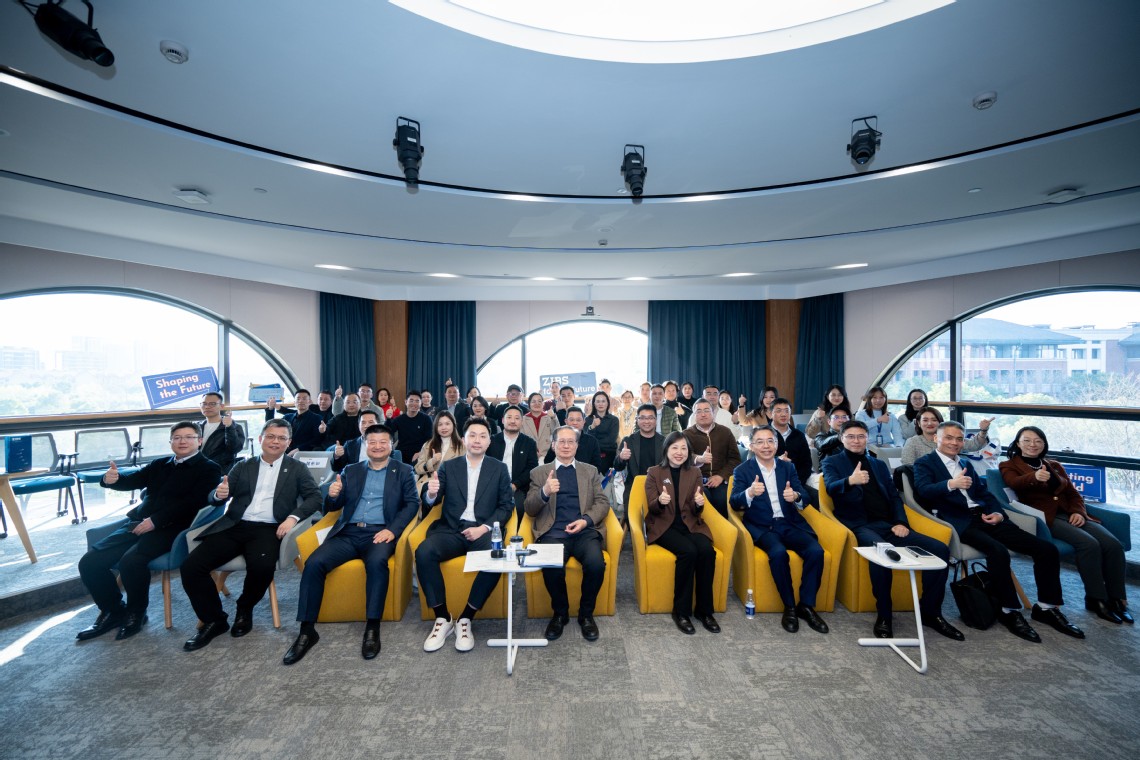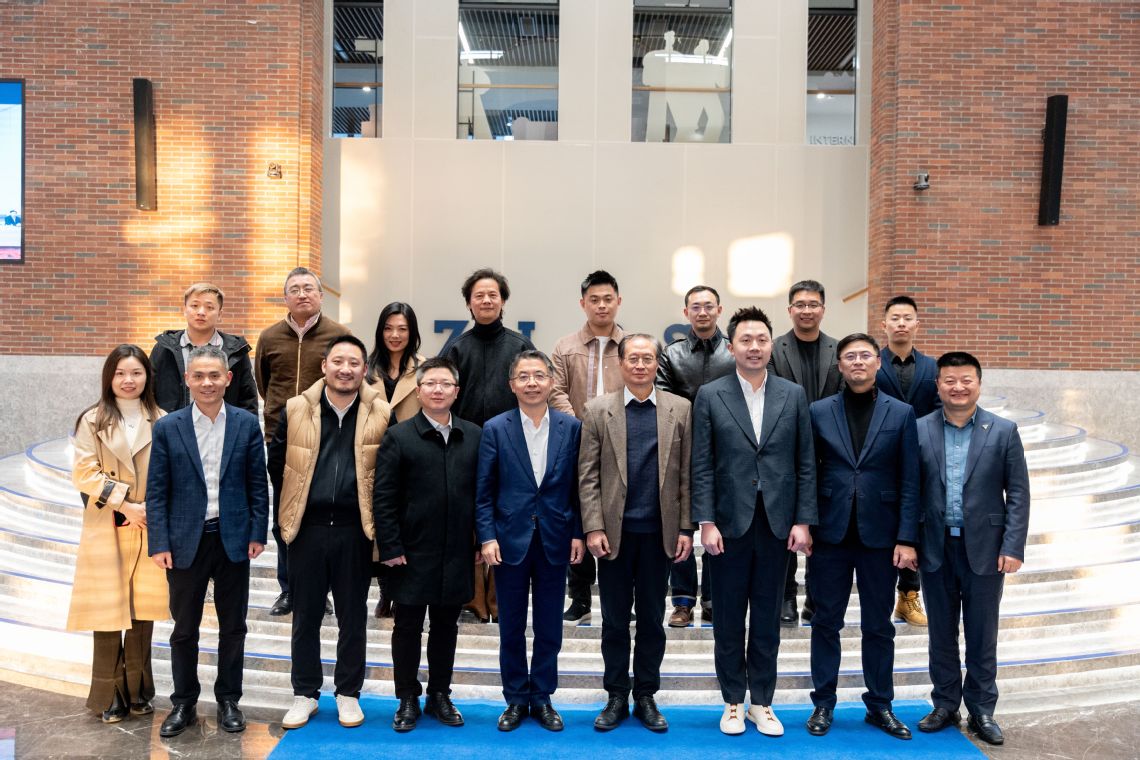On March 18, the “Hai Academy Spring Salon & Zhejiang Zhongnan Signing and Donation Ceremony” was successfully held, under the guidance of the Zhejiang Federation of Industry and Commerce and co-organized by Zhejiang University International Business School (ZIBS) and Haining Federation of Industry and Commerce. LI Min, Party Secretary and Vice President of Zhejiang University International Campus; ZHANG Guohua, Party Secretary and Chairman of the Haining Federation of Industry and Commerce; BEN Shenglin, Dean of ZIBS; ZHAO Xiaoyong, former Chairman of the Hubei Federation of Industry and Commerce; WU Wei, President of Zhejiang Zhongnan Group; and CHEN Zhenhua, Deputy Secretary-General of Zhejiang University Education Foundation, among others, attended the ceremony. The event centered on the theme of“Sustainable Development,” exploring pathways for high-quality growth of private enterprises and charting a new blueprint for industry-academia integration.
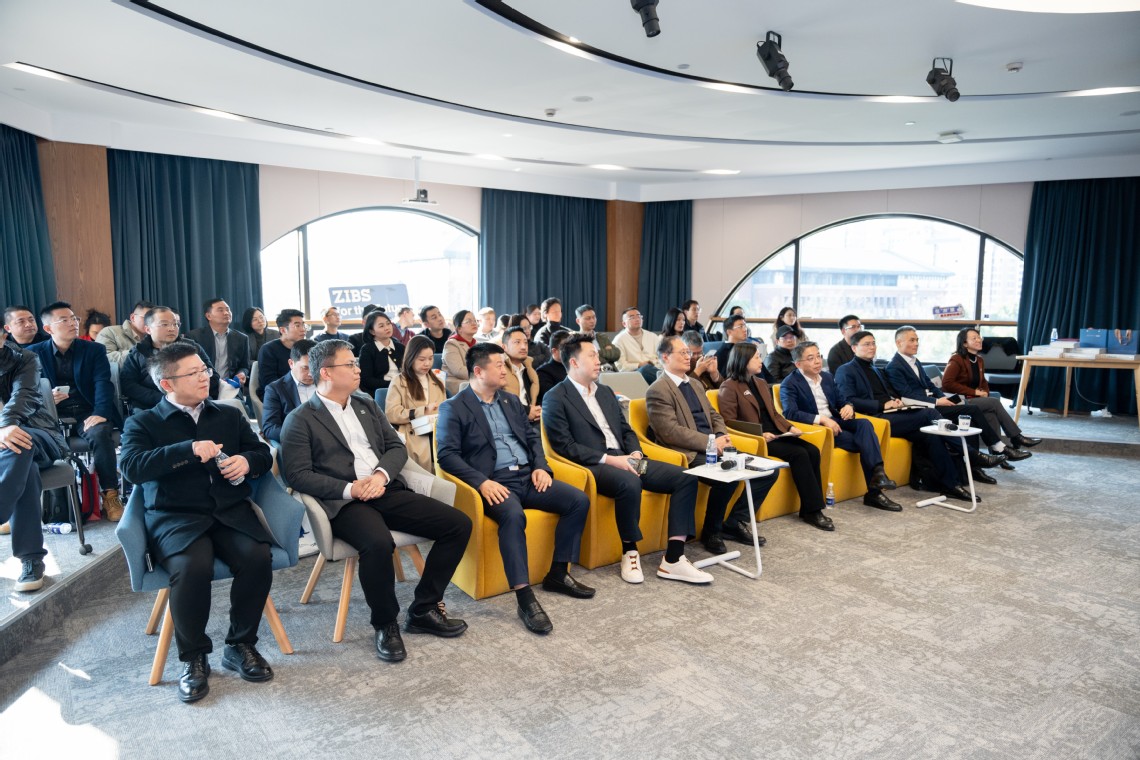
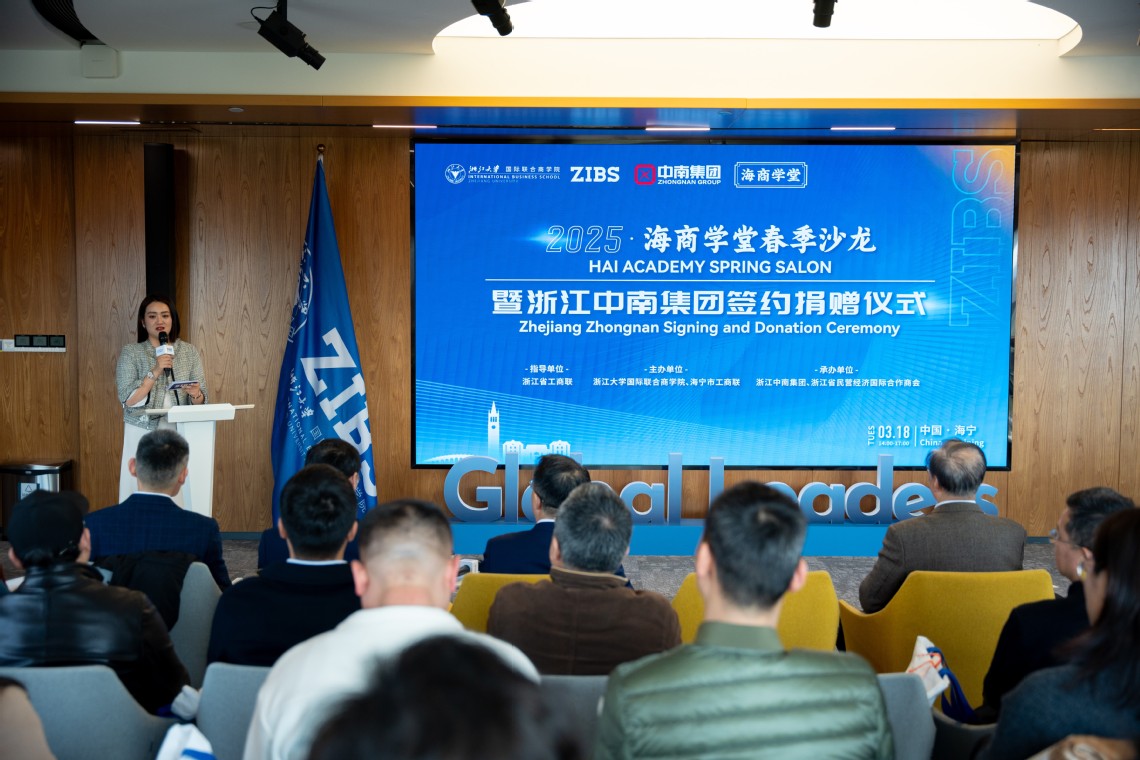
LI Min praised Zhejiang Zhongnan Group’s strong sense of social responsibility, noting that their practices exemplify the Zhejiang business spirit of balancing profit with public good. She emphasized that the strategic partnership between ZIBS and Zhongnan represents a profound resonance between entrepreneurial vision and the university’s educational mission. Looking ahead, she anticipates joint innovation in industry–education integration, cross-border talent training systems, and the transformation of research into real-world impact—leveraging academic insight to power industrial advancement and using corporate practice to drive educational evolution.
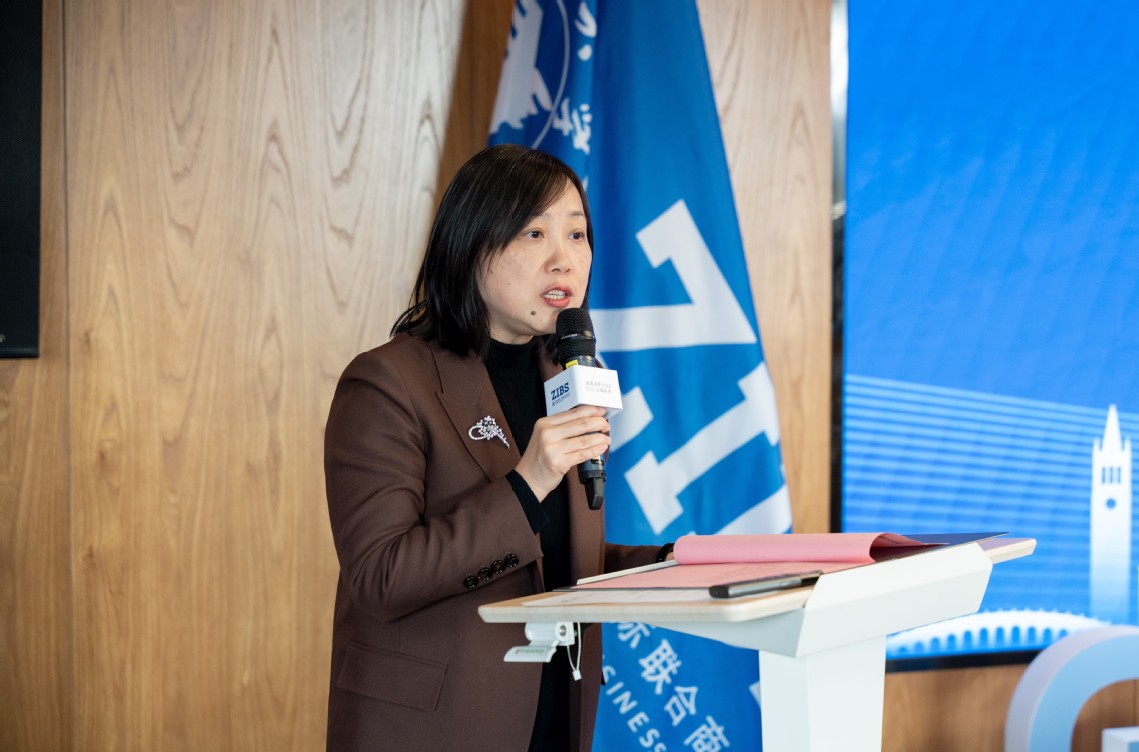
ZHANG Guohua noted that Haining, as a hotbed of private enterprise, has always welcomed innovative resources with an open stance. He explained that Hai Academy is not merely a forum for deep government–industry–academic–research integration, but a three-tiered ecosystem platform— “serving Haining businesspeople, supporting their learning, and fostering campus–local collaboration.” He emphasized that the Haining Federation of Industry and Commerce eagerly anticipates and will actively back partnerships with all stakeholders to create a new, open, win-win ecosystem.
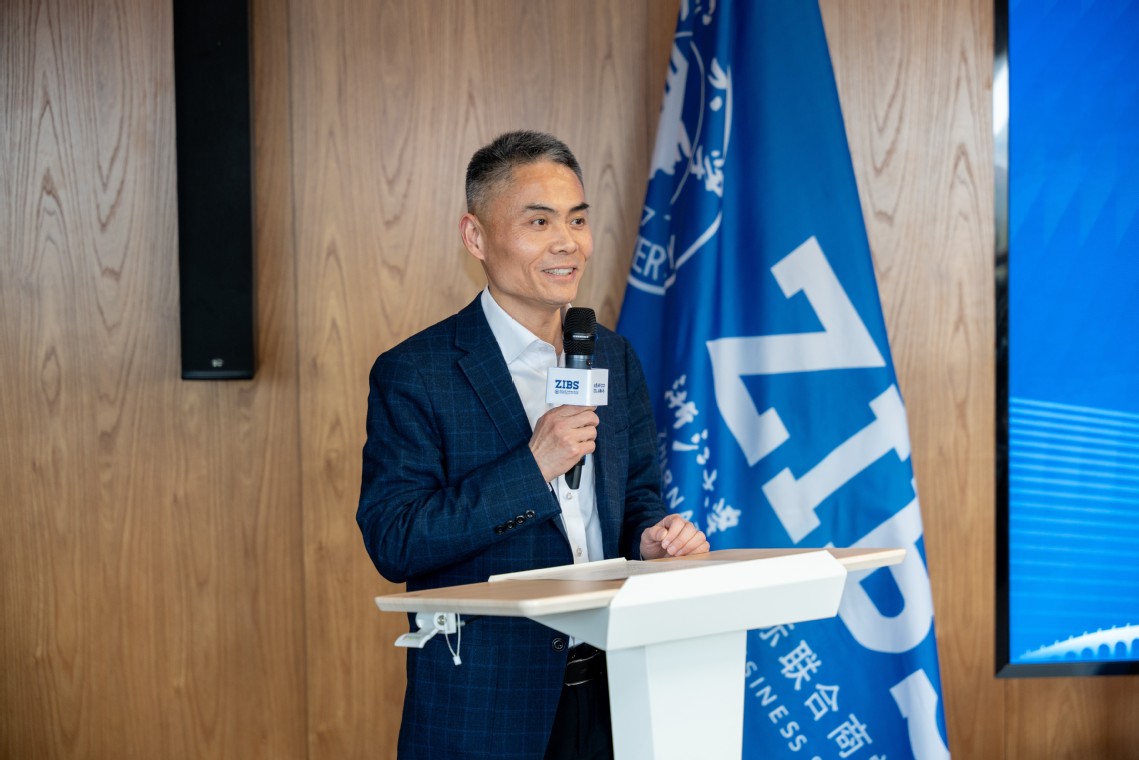
BEN Shenglin spoke from ZIBS internationalized educational standpoint, outlining the business school’s mission to empower industrial practice. He stressed that ZIBS will root itself in Haining’s economic landscape, fully leveraging Hai Academy as a hub for governmental, corporate, academic, and research synergy. With a global outlook, ZIBS aims to co-create new collaboration models with leading firms like Zhejiang Zhongnan Group, injecting fresh momentum into corporate digital transformation and sustainable development.
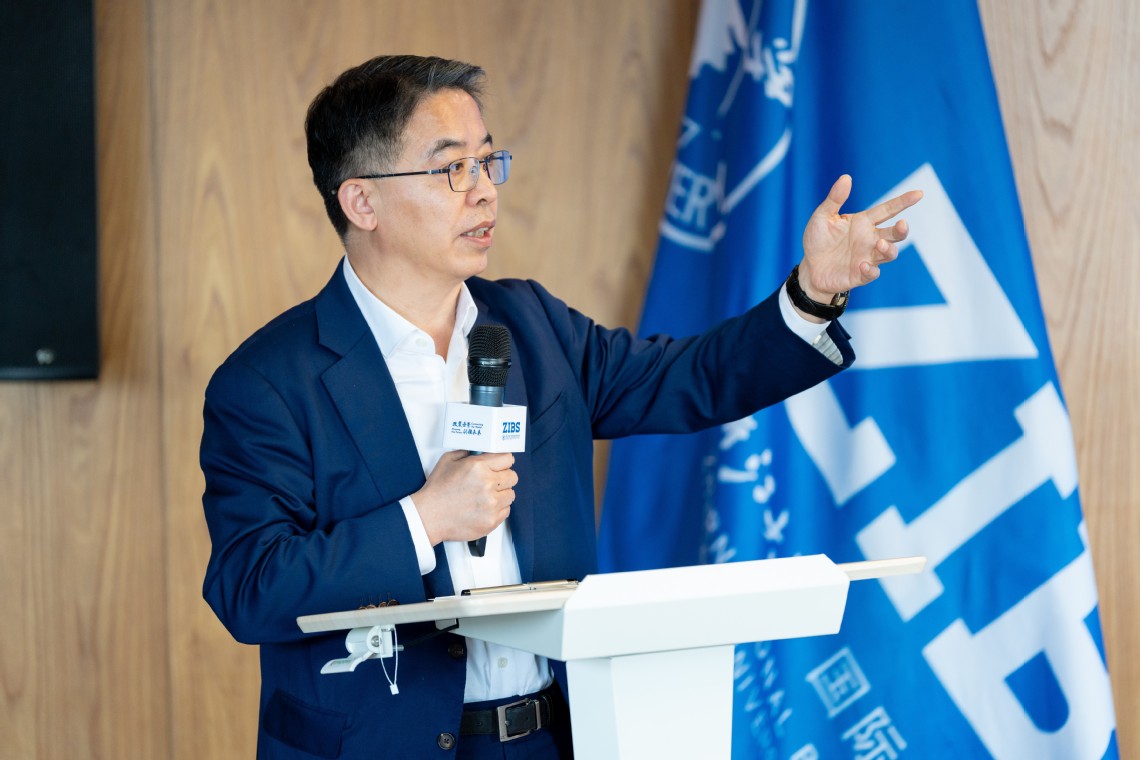
ZHAO Xiaoyong delivered a keynote titled “Analysis of Chamber of Commerce Organizations and Corporate Behavior.” Drawing on historical depth and a global perspective, he systematically unpacked the essence, value, and future directions of chambers of commerce. Through international case studies, he underscored the vital role these organizations play in guiding private enterprises through developmental shifts—providing both theoretical anchors for local federations and broadening practical pathways for private-sector growth.
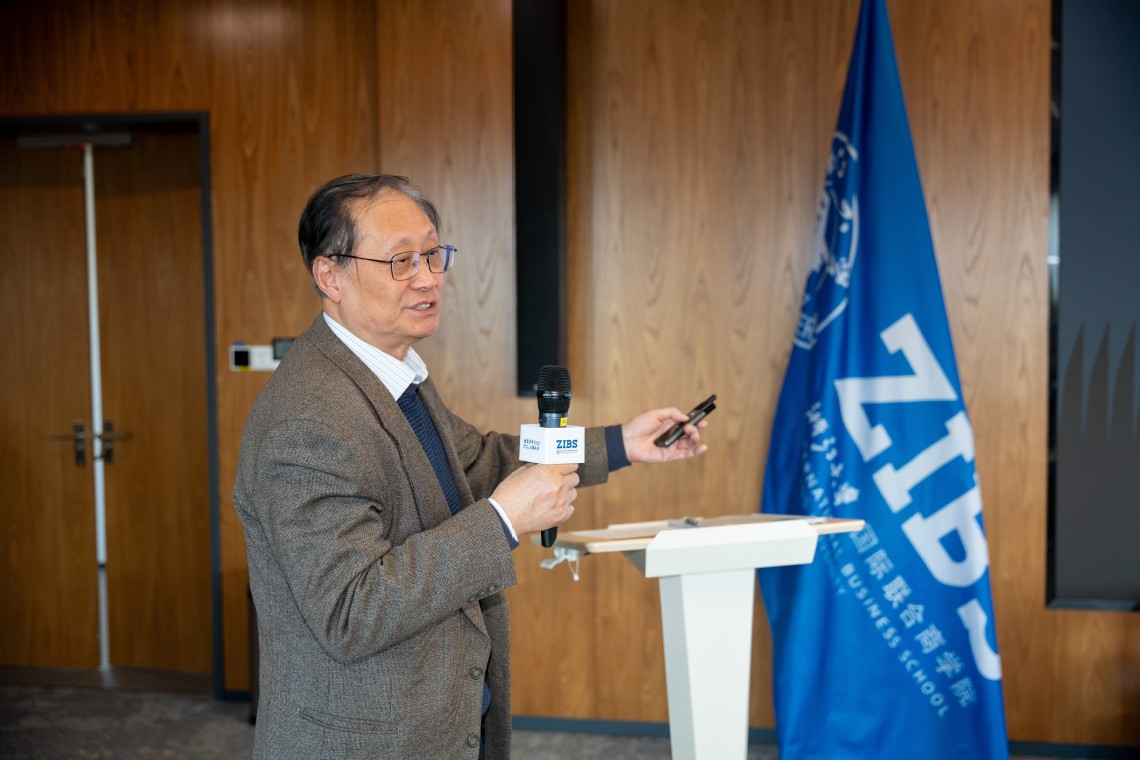
In a special book-donation segment, ZHAO presented his latest work, Contemporary Chinese Chambers of Commerce. This influential study chronicles seventy years of chamber evolution in China and offers a deep dive into their pivotal roles in resource allocation, industrial collaboration, and shared risk management. Representatives from the Zhejiang Private Economy International Cooperation Chamber of Commerce, Haining Federation of Industry and Commerce, local entrepreneurs, and ZIBS faculty and students accepted the donation.
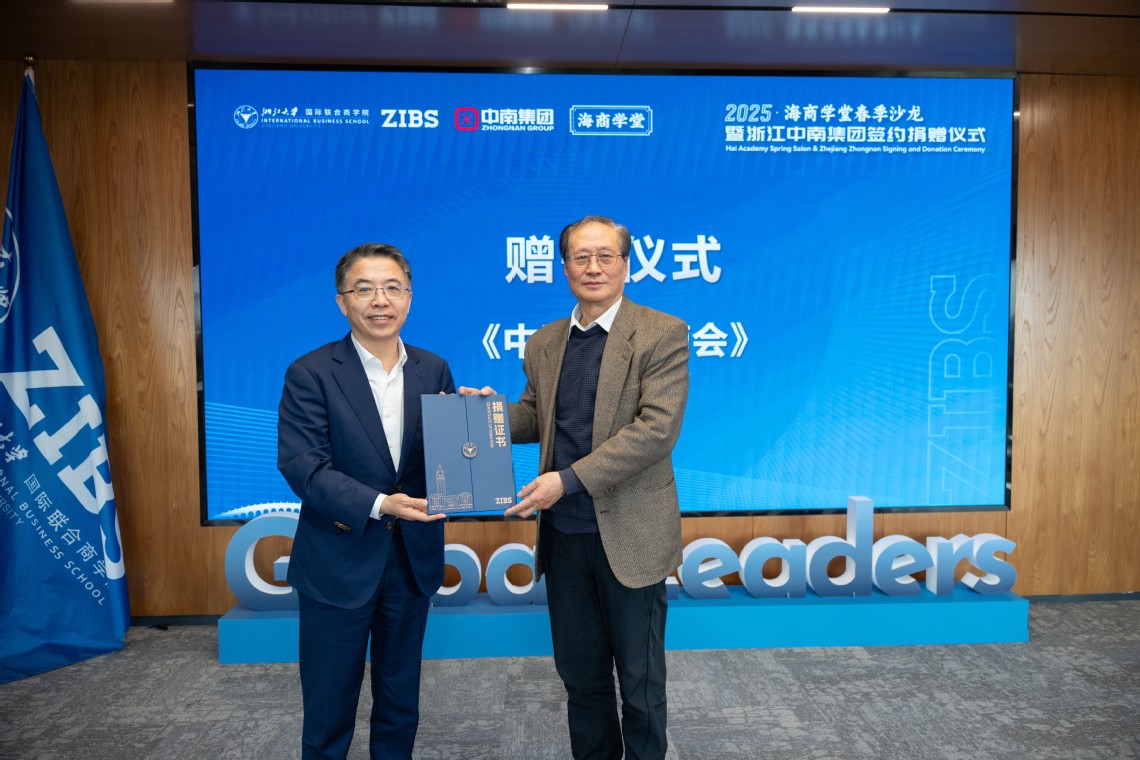
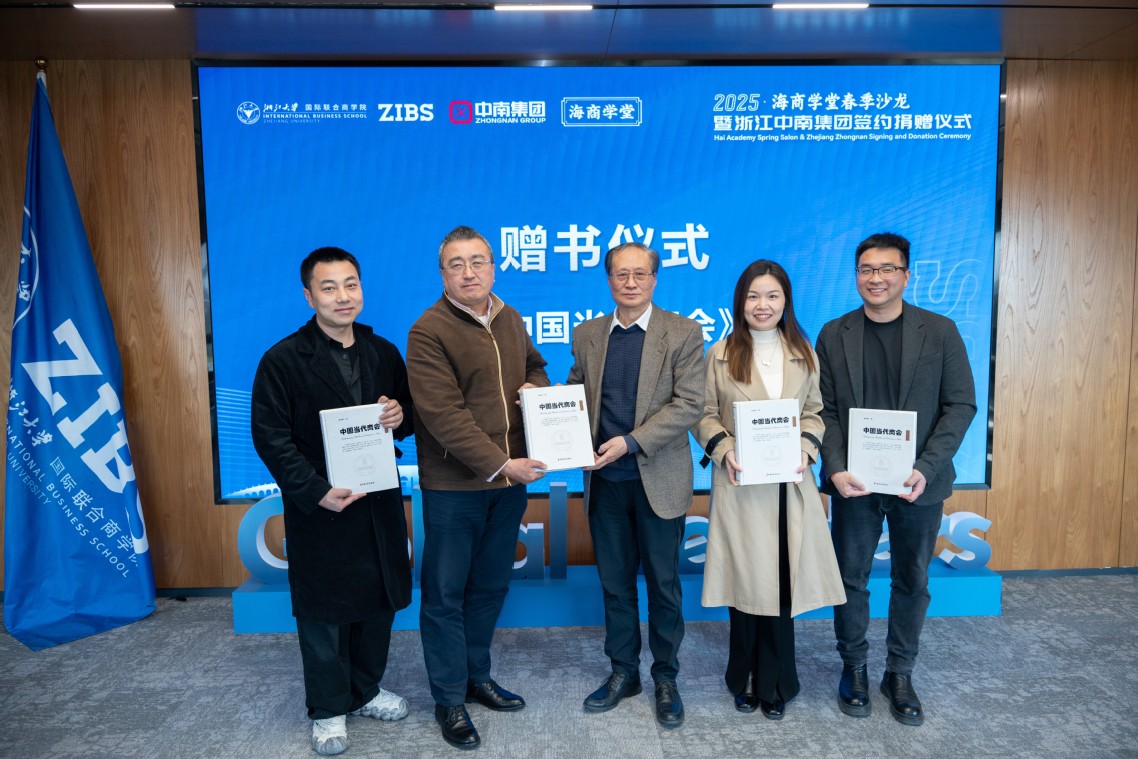
Senior leaders of Zhejiang Zhongnan Group shared their theme, “Green Transformation Driving Zhongnan’s High-Quality Growth.” They detailed the Group’s innovative practices and strategic roadmap for green transformation, characterizing “green development” as the surest pathway to sustainability. They pledged to advance the dual engines of “smart + green” to propel both the construction industry’s eco-transition and global ecological progress.
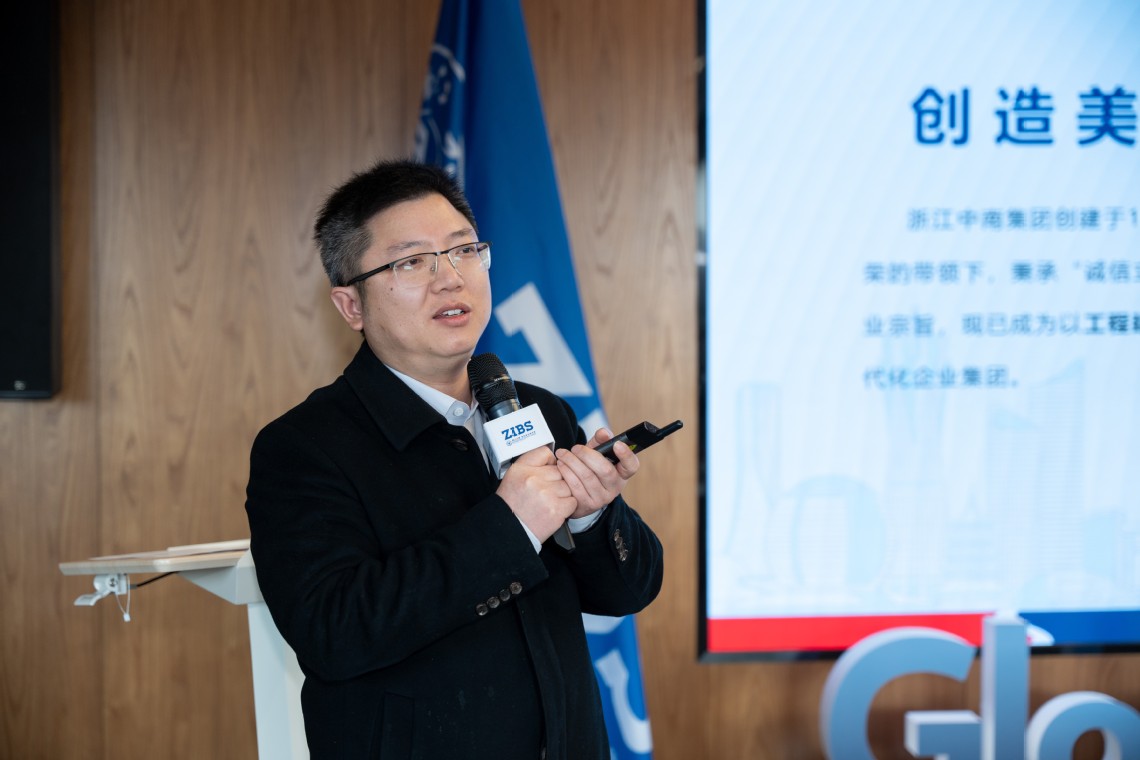
WU Wei noted that Zhongnan’s strategic pillars of “Digitalization, Green Transformation, Internationalization” resonate deeply with ZIBS educational pillars of “Globalization, Digital-Intelligence, Ecology.” This alignment opens wide horizons for university–enterprise collaboration. He stressed that at the root of globalization is talent competition; Zhongnan looks forward to co-hosting international innovation competitions, integrating corporate mentors into the classroom, and enriching the case library—together nurturing a new generation of versatile, globally minded professionals.
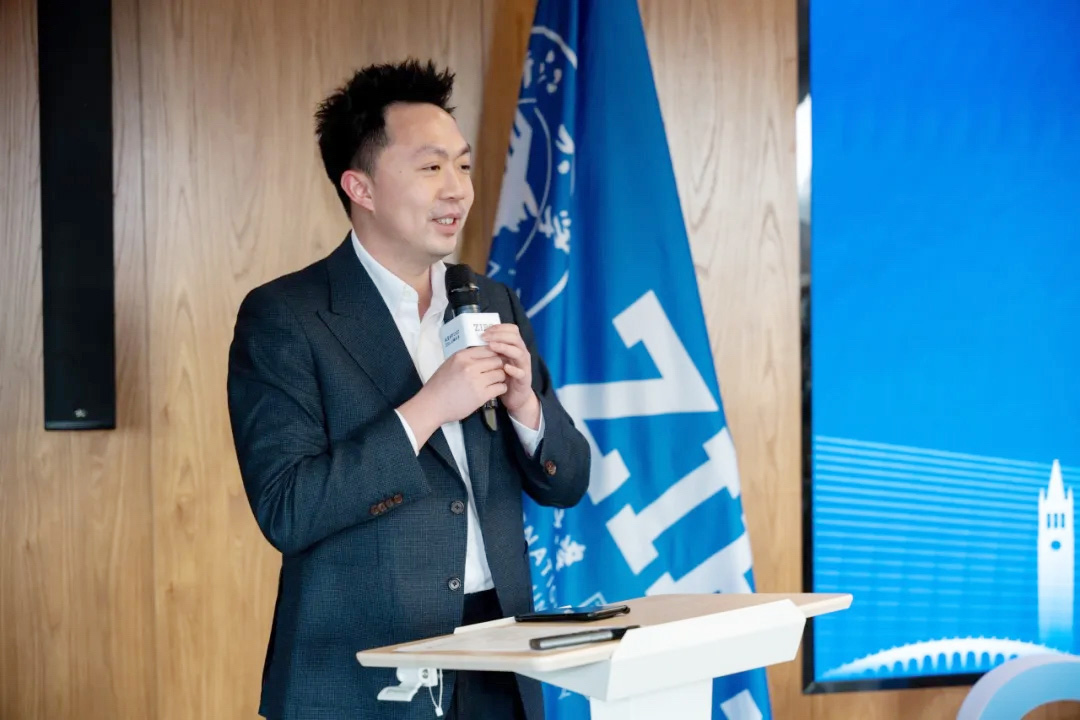
A formal donation ceremony followed, during which Zhejiang Zhongnan Group presented a gift to the Zhejiang University Education Foundation. CHEN Zhenhua then presented Zhongnan with a commemorative certificate and plaque.
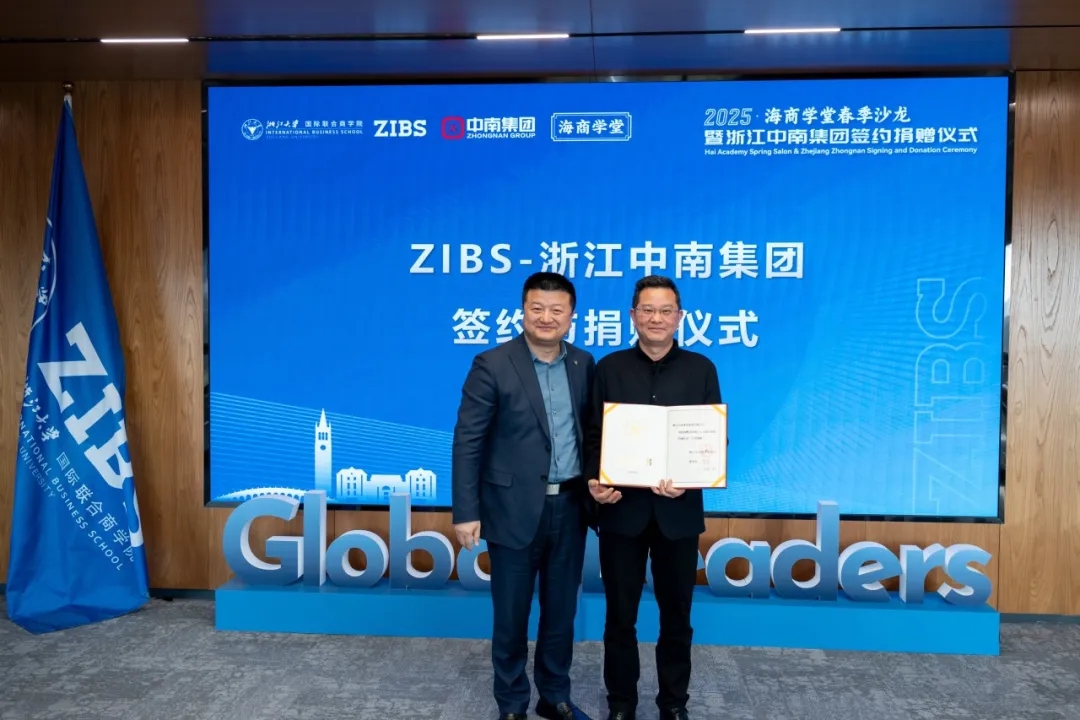
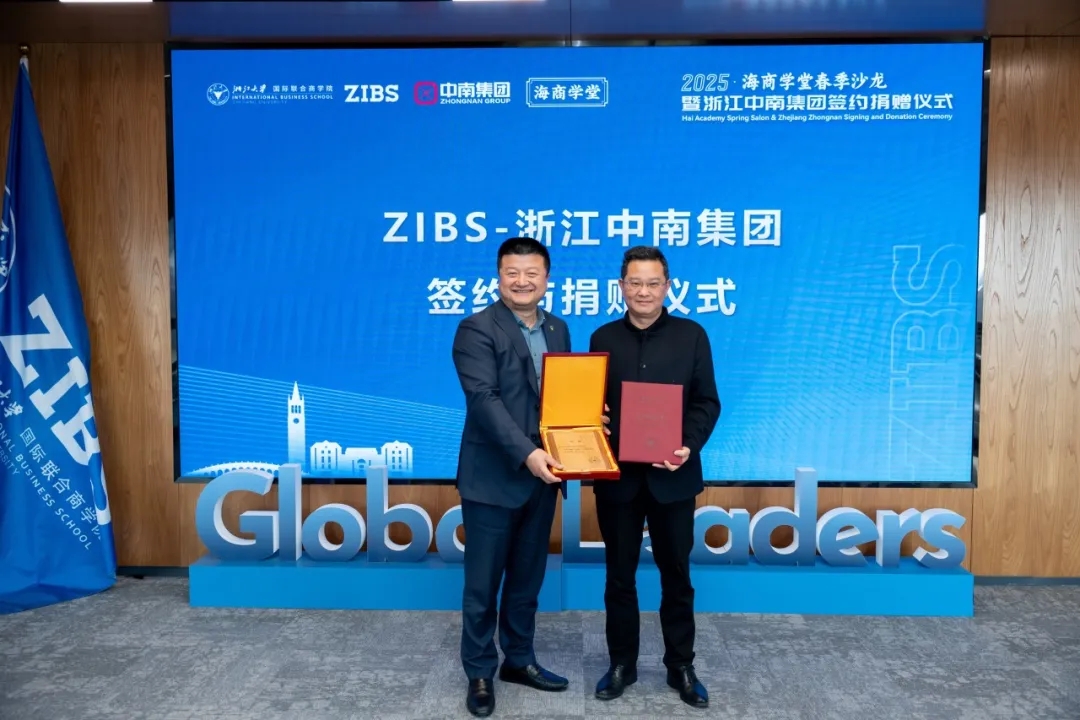
MO Shenjiang, ZIBS Vice Dean and XU Liqing, Vice President of Zhejiang Zhongnan Group, jointly signed a strategic cooperation agreement.
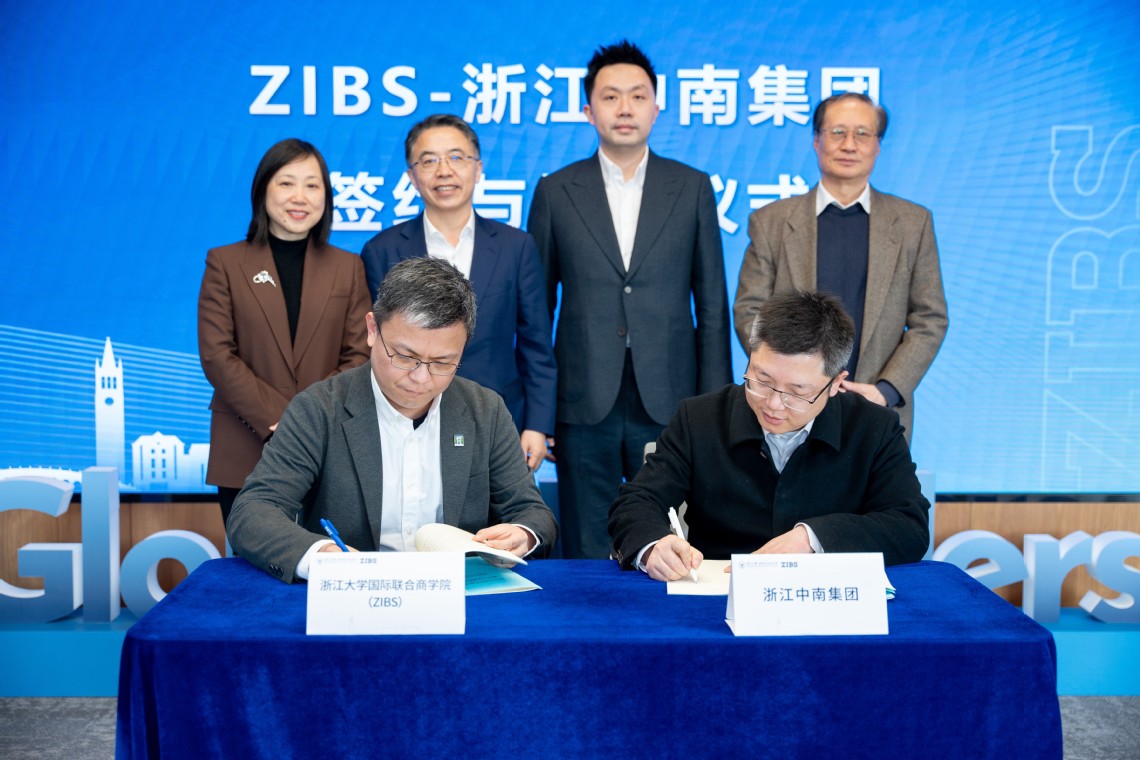
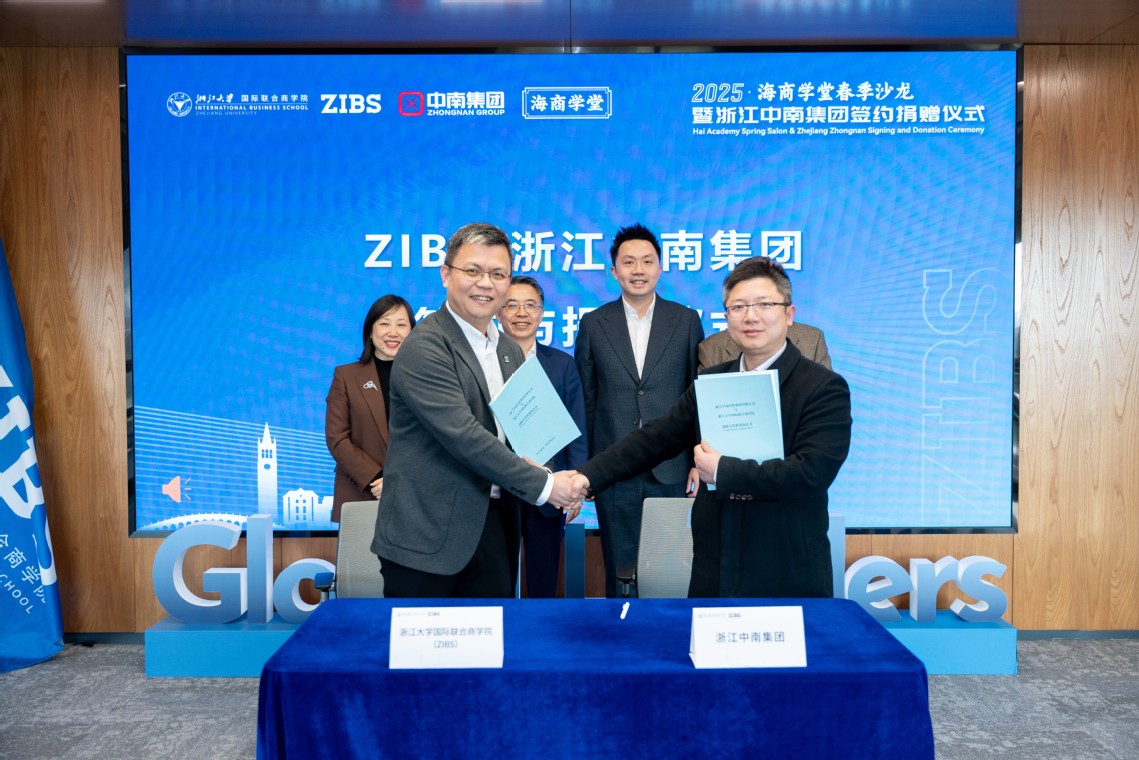
BEN Shenglin and CHEN Jingyan, ZIBS Vice Dean conferred industry-mentor appointments on Zhongnan executives—signaling the launch of a “Theory + Practice” dual-track talent development system.
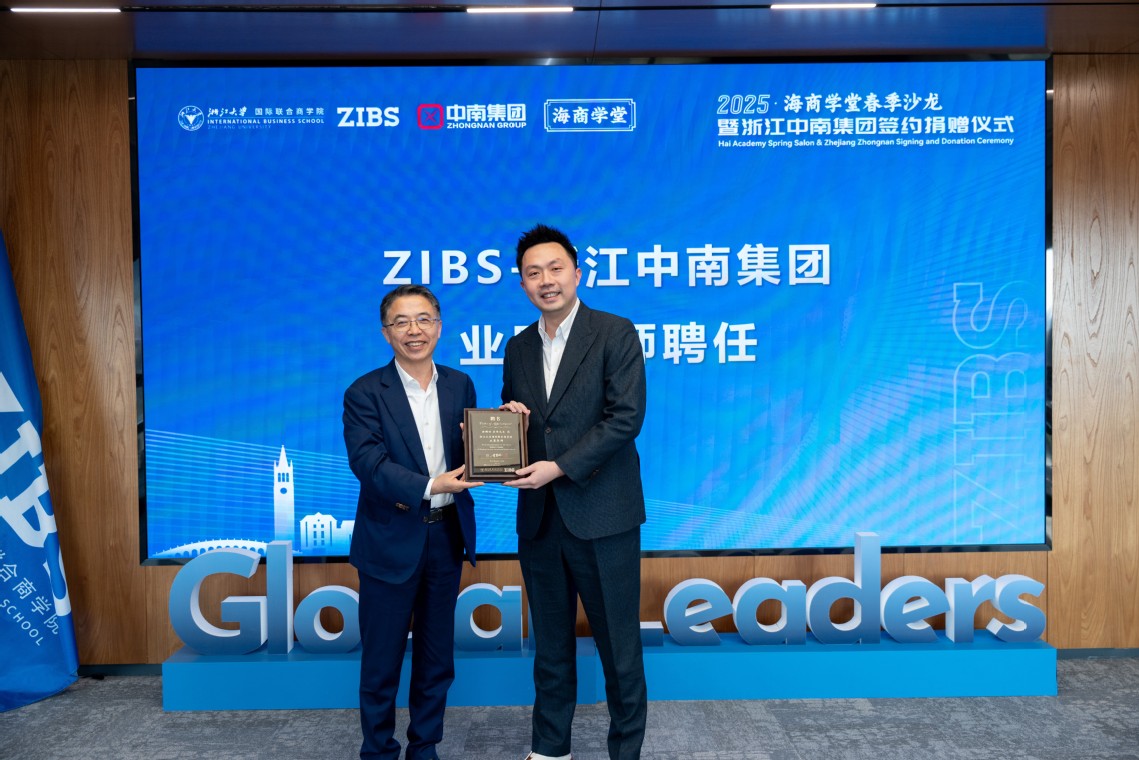
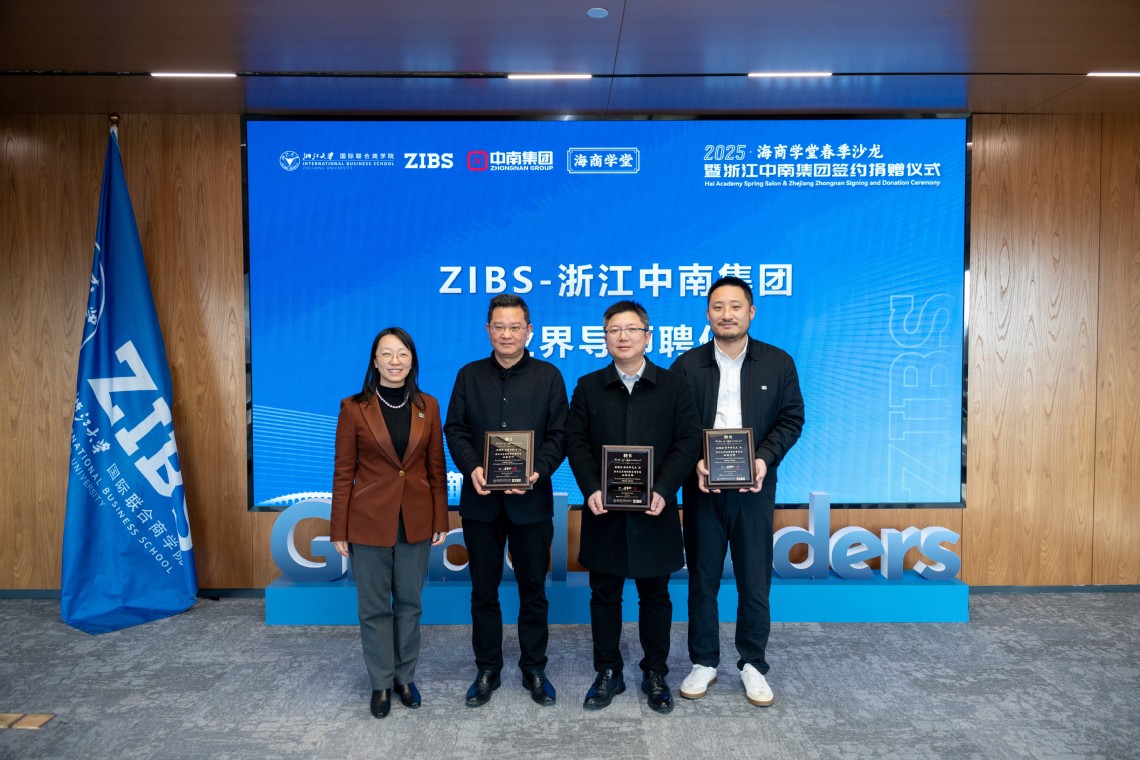
In a roundtable moderated by WEI Binru (ZIBS Assistant Professor), panelists including CAO Zhongshu (Assistant to the President and Investment Director, Zhejiang Zhongnan Group), WAN Feng (ZIBS Associate Professor), and SUN Jiefeng (Chairman, Zhejiang Guanghua Technology Co., Ltd.) discussed topics such as university–industry innovation collaboration, private enterprises’ internationalization strategies, and sustainable development. They exchanged insights on corporate strategy, the commercialization of industry–academic research, and resource allocation.
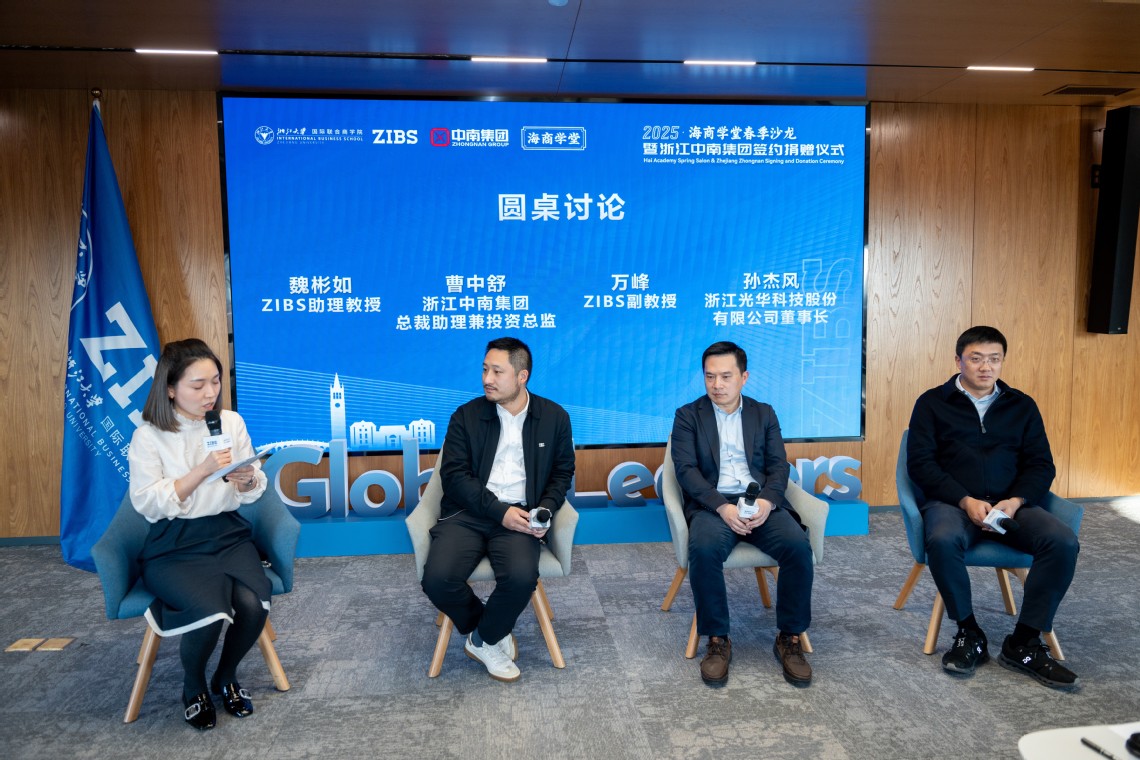
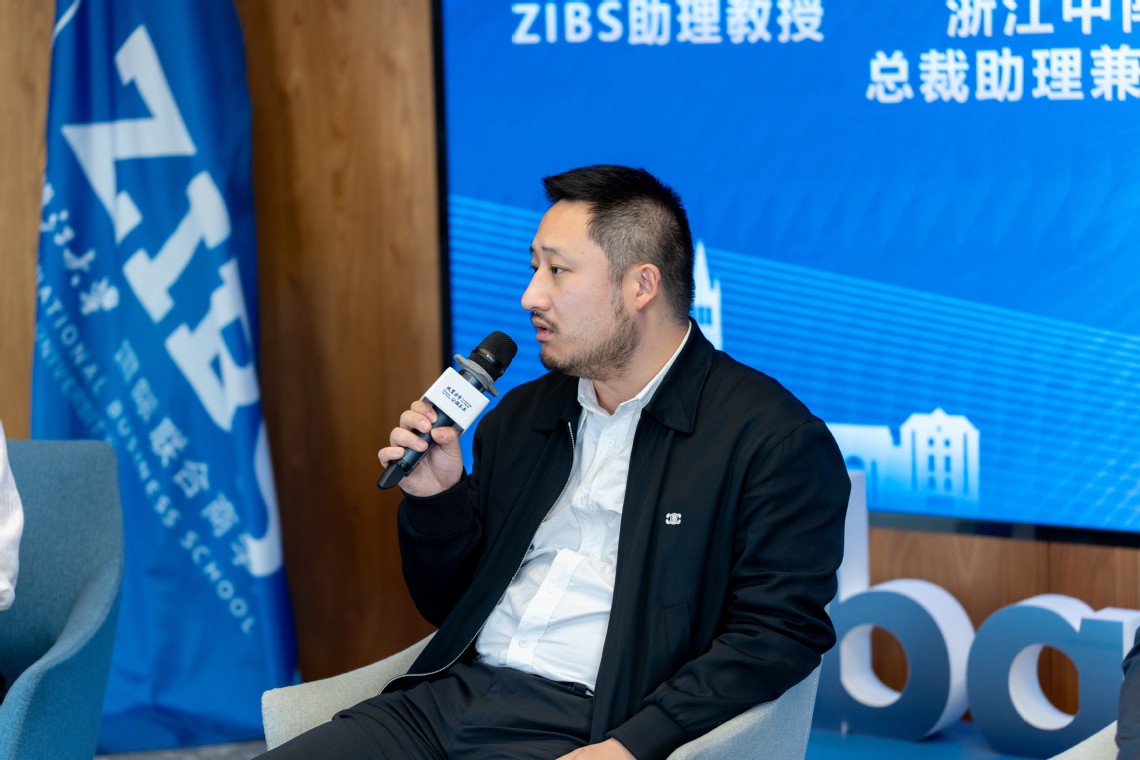

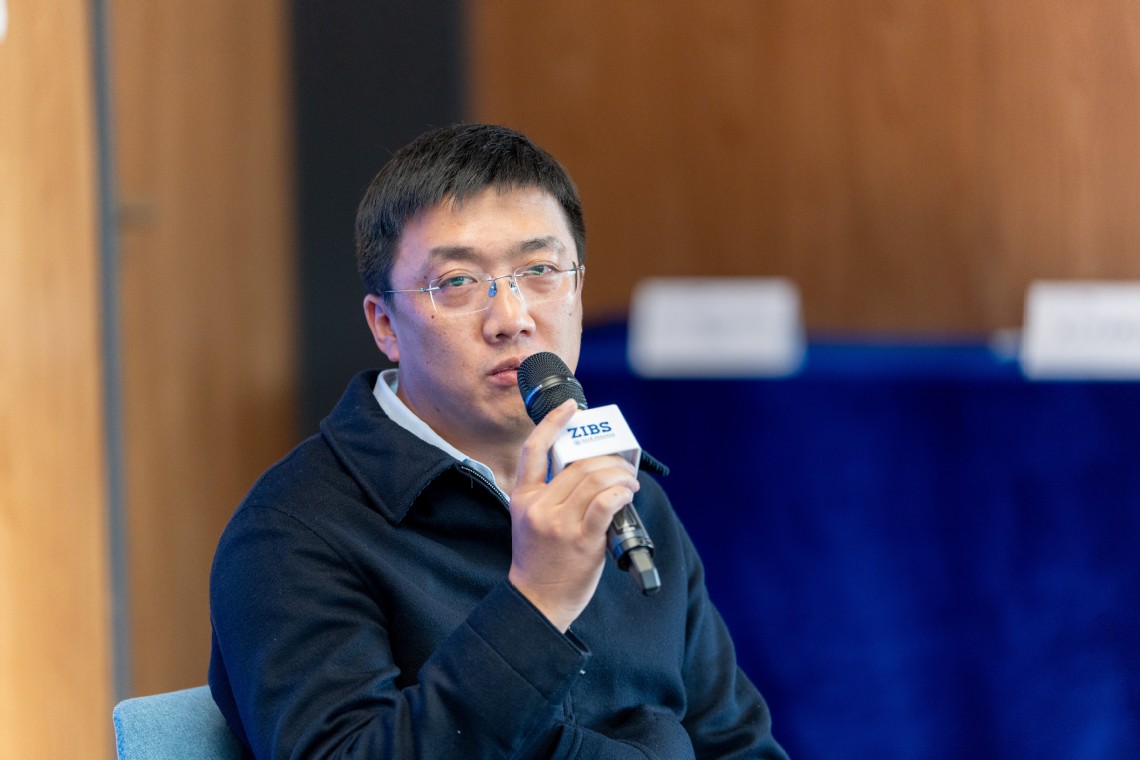
ZHANG Cheng, Director of International Cooperation at the Zhejiang Federation of Industry and Commerce, delivered closing remarks, lauding the “tripartite synergy of government, academia, and enterprise” as an innovative approach to driving high-quality growth in the private sector. He called for more such platforms to deepen government–enterprise–academic integration and write a new chapter in the high-quality development of China’s private economy.
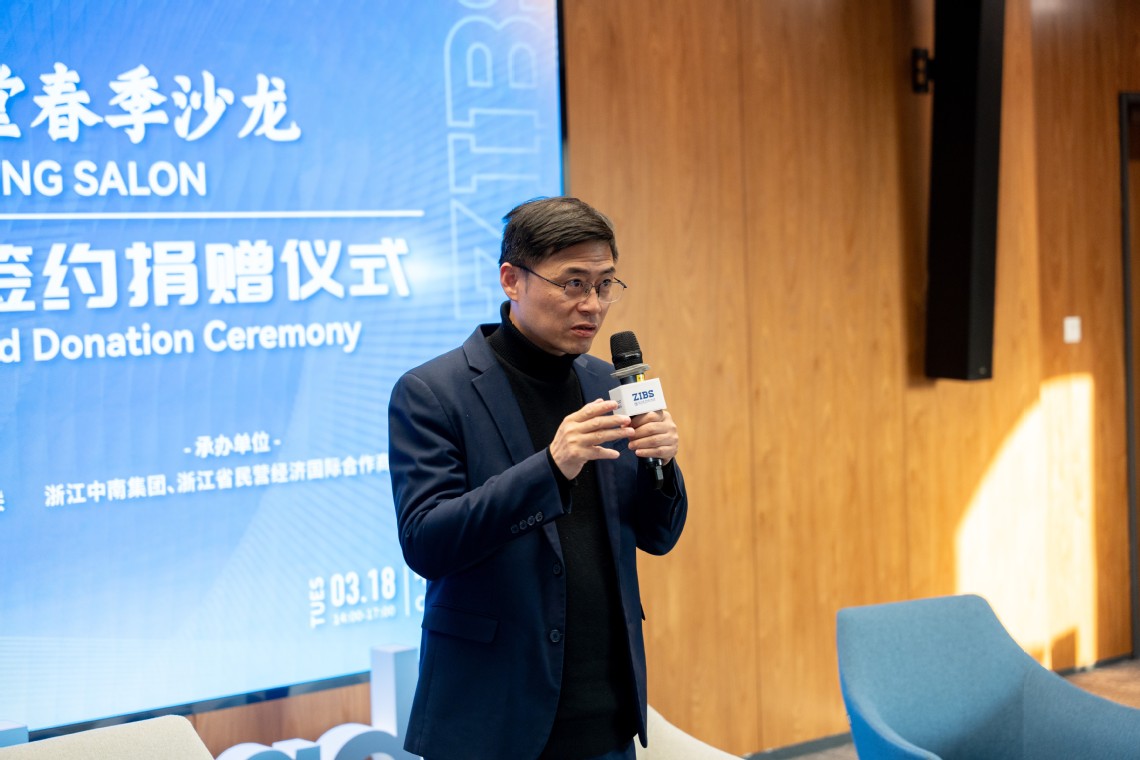
Embracing change and shaping the future, ZIBS will take this strategic partnership as a new starting point to further advance its interdisciplinary “Business+” initiative. The school will focus on cutting-edge fields such as fintech, digital innovation, and sustainable development, and build a five-pronged synergy platform integrating policy, capital, industry, talent, and technology. Through this, ZIBS is committed to writing a new chapter in collaborative innovation between academia, industry, and local communities in the new era. The event was hosted by SHEN Li, Assistant Dean of ZIBS.
